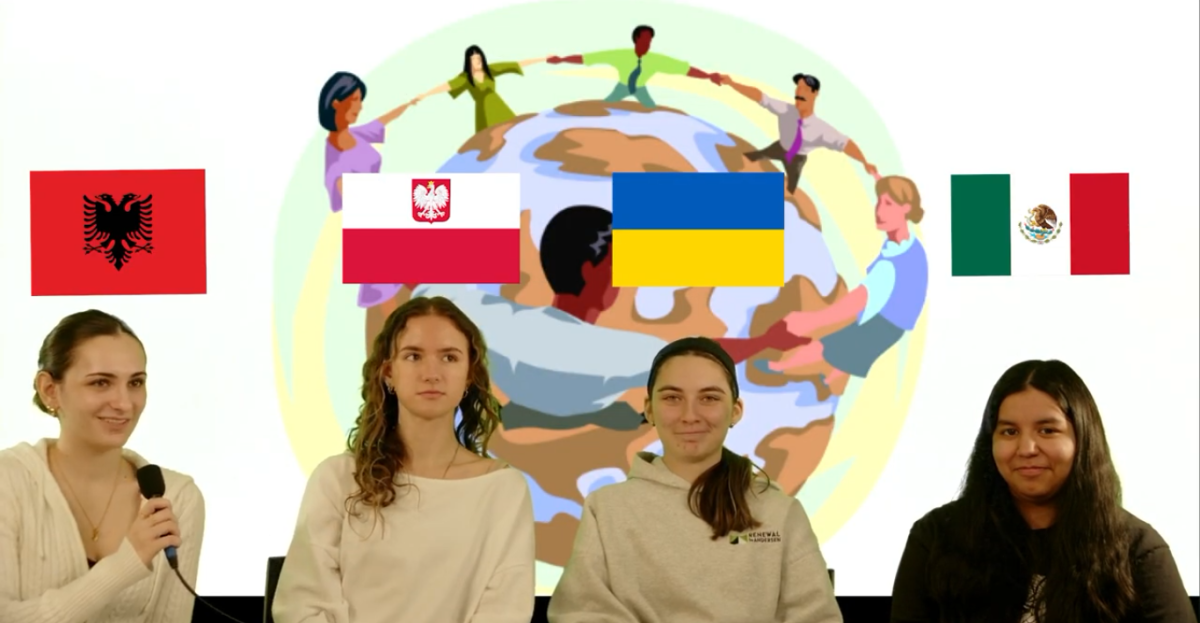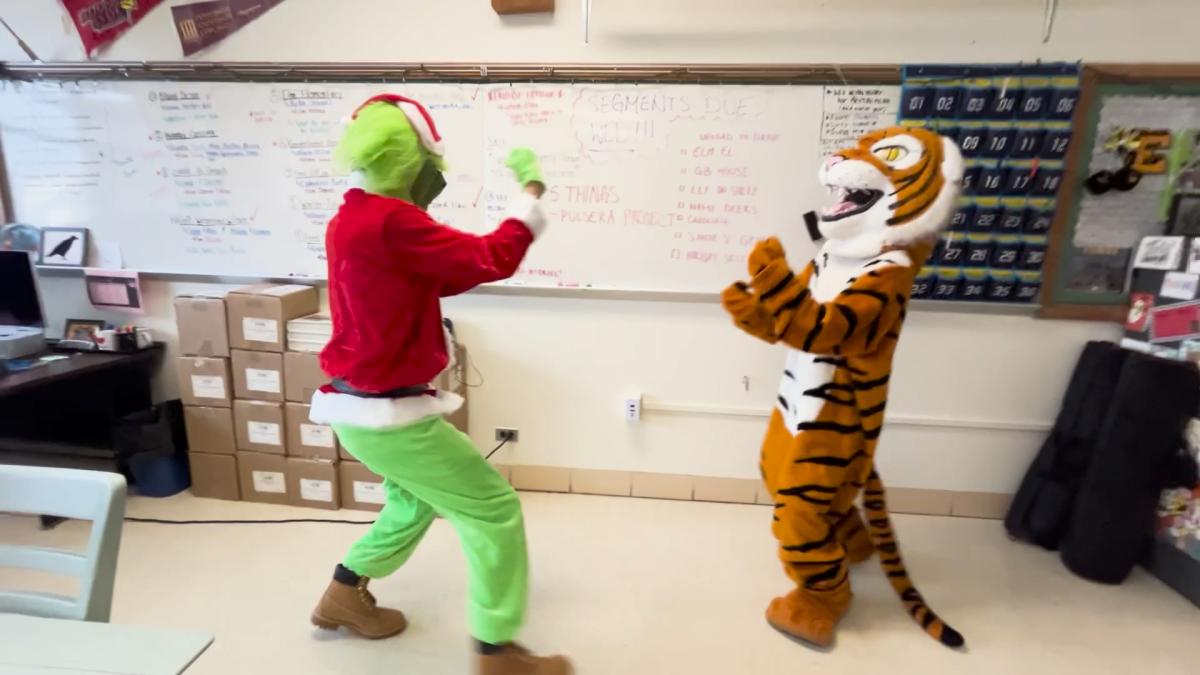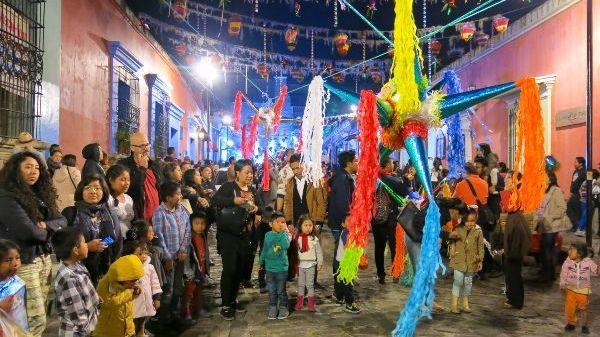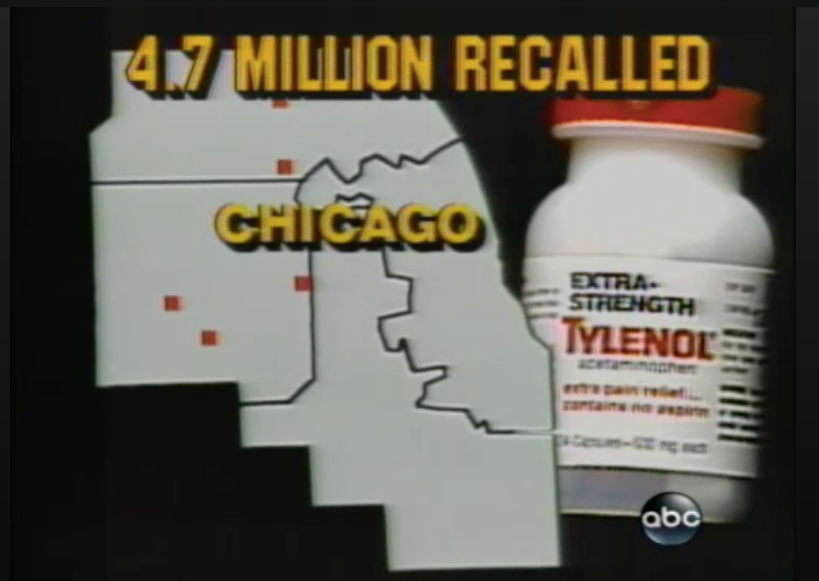Have you ever wondered how different cultures celebrate Christmas during the holidays? Many countries embrace unique traditions, from festive foods to special events. In Mexico, the holiday season is deeply rooted in religious and cultural celebrations with food, music, and vibrant gatherings bringing families and communities together.
Festivities beginning December 8th
The holiday season officially begins on December 8th, with the Feast of the Immaculate Conception (La Fiesta de la Virgen de la Inmaculada Concepción). This day is dedicated to the Virgin Mary’s conception, free from original sin, and is celebrated with special Masses and religious processions. Many towns and cities host community gatherings where families come together to pray, share meals, and enjoy local festivities. The following day, December 9th, marks the Feast of San Juan Diego. This feast commemorates Saint Juan Diego, the indigenous man to whom the Virgin Mary appeared in 1531 on Tepeyac Hill. In many places, reenactments of this event are performed, and people gather to honor his faith and humility. Special prayers and offerings are made at local churches, and in some areas, children dress in traditional indigenous clothing to pay homage to Juan Diego’s heritage.
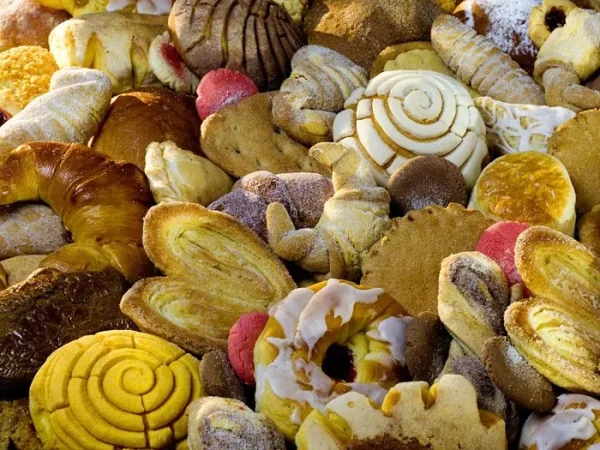
December 12th: Feast of Our Lady of Guadalupe
One of the most widely celebrated days during the holiday season is December 12th, the Feast of Our Lady of Guadalupe. On this day, millions of people honor the Virgin of Guadalupe, Mexico’s patron saint. The Feast of Our Lady of Guadalupe is extremely popular. On this day, people’s celebrations often begin at dawn with “Las Mañanitas”, a serenade of songs sung in her honor. Typically, many Latinos and Mexicans will celebrate “…this day in distinct ways and forms, with a visit to church which is held in honor of her, praying the Rosary or even visiting Mexico City to visit the Basilica and bring her flowers” (Soria, 2024). In Mexico City, thousands make pilgrimages to the Basilica of Our Lady of Guadalupe, where her miraculous image is displayed. Communities also hold processions, parades, and cultural events, such as traditional dances and music performances to commemorate this significant day.
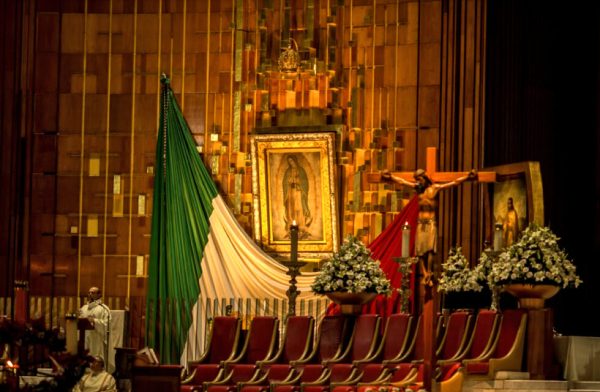
On December 12th, many people gather to celebrate La Virgen de Guadalupe. People often celebrate by holding parades and ceremonies honoring La Virgen de Guadalupe.
Festivities after December 12th
The holiday celebrations don’t end with the Feast of Our Lady of Guadalupe. They continue with Las Posadas, which start on December 16th and run until Christmas Eve. Each night, families and communities gather for prayers, caroling, and reenactments of Mary and Joseph’s journey. Guests are treated to tamales, champurrado, and atole, warm drinks that are staples of the season.
One of the most cherished traditions in Mexico is Las Posadas, a nine-day celebration reenacting Mary and Joseph’s search for a place to rest in Bethlehem. This procession, celebrated from December 16th through Christmas Eve, includes carolers, food, warm drinks, and colorful piñatas. As part of the tradition, children often dress as angels, leading processions that move from house to house. Each evening ends with a feast featuring classic dishes, like tamales and pozole, along with sweet treats, like pan dulce. On December 24th (Nochebuena), Mexicans celebrate Christmas Eve with a grand dinner shared with extended family and friends. This night often includes attending Misa de Gallo (Midnight Mass) followed by feasts of pozole, tamales, buñuelos, and ponche, a traditional hot fruit drink sweetened with sugar cane.
Following Christmas Day, the celebrations continues on January 6th, known as Día de los Reyes (Three Kings’ Day). On this day, children receive gifts in honor of the Three Wise Men, and families share a Rosca de Reyes, a sweet bread shaped like a crown. Hidden inside the bread is a small figurine of baby Jesus, and the person who finds it has to host a party on February 2nd, Día de la Candelaria. The food made during this celebration are tamales; tamales have to be the main course because finding the figurine is similar to a penalty. Since it’s considered a penalty, tamales were strategically chosen to be served for dinner because of the long, tedious process to make each and every one of them.

Traditional Holiday Foods and Drinks
Food plays a central role in Mexican Christmas traditions. Two staples that are always prepared during Las Posadas are tamales and pozole. Making tamales is a communal effort, with family members gathering to prepare the masa (corn dough) and fillings, which can be sweet or savory. Popular flavors include red or green tamales filled with pork or chicken and covered in sauce.
Pozole, a stew, is another holiday favorite. This dish is made with hominy and meat, usually pork or chicken, and is served with toppings like lettuce, radishes, lime, and chili.
Another popular holiday treat is ponche, a hot fruit punch made with oranges, pears, apples, guavas, and spices, like cinnamon. A unique twist is the addition of sugar cane sticks, which not only sweeten the drink but can also be chewed on for extra flavor. There are also sweet drinks, like atole, champurrado, and arroz con leche.
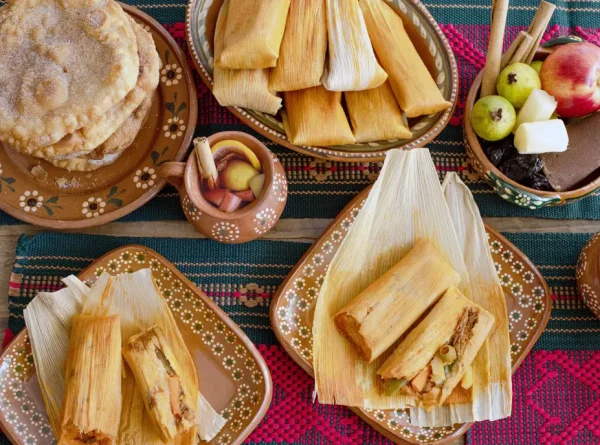
The holiday season in Mexico is a time of warmth and togetherness. Whether celebrating through religious feast days or enjoying delicious meals with loved ones, these traditions are a demonstration of the country’s rich culture and strong sense of community. For many, the festive spirit in Mexico is unique as the season extends far beyond December 25th and carries into the New Year.
Works Cited
- Blog, G. (2022, November 30). The History and Traditions of La Posada. Desert Botanical Garden. Retrieved December 11, 2024, from https://dbg.org/history-of-la-posada/
- Soria, P. (2024, December 6). Día de la Virgen de Guadalupe 2024: Por qué es considerada la madre de México. AZ Central. Retrieved December 11, 2024, from https://www.azcentral.com/story/noticias/2024/12/06/por-que-se-celebra-el-12-de-diciembre-la-virgen-de-guadalupe/76808910007/
- Tellez, L. (2010, December 13). How to make ponche, the traditional Mexican Christmas punch. The Mija Chronicles. Retrieved December 11, 2024, from https://www.themijachronicles.com/2010/12/how-to-make-ponche-the-traditional-mexican-christmas-punch/
















